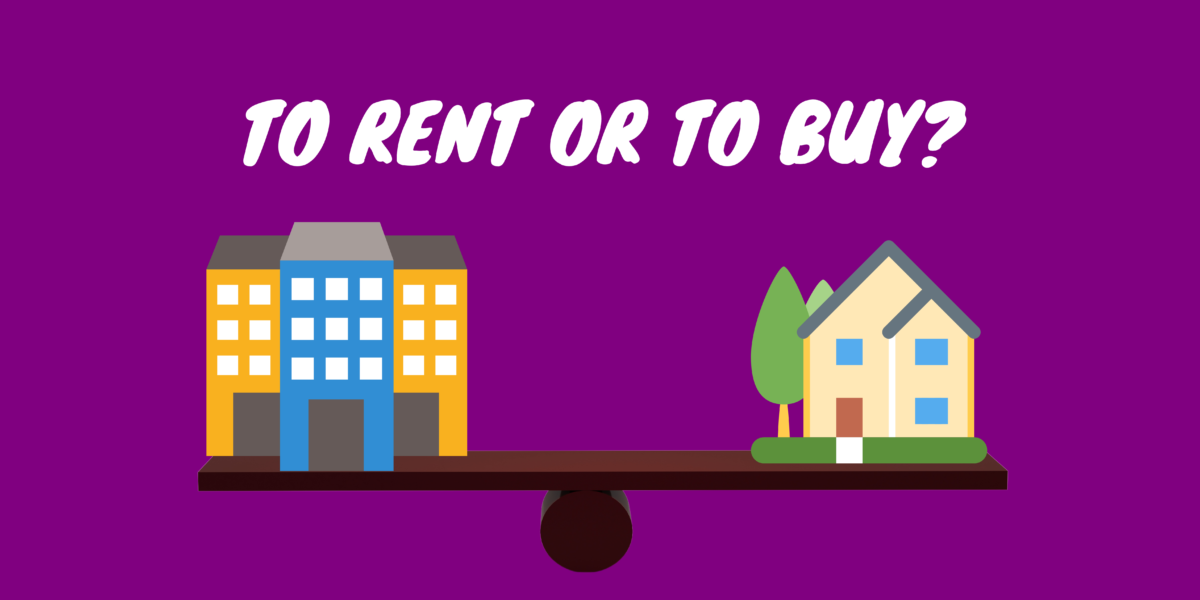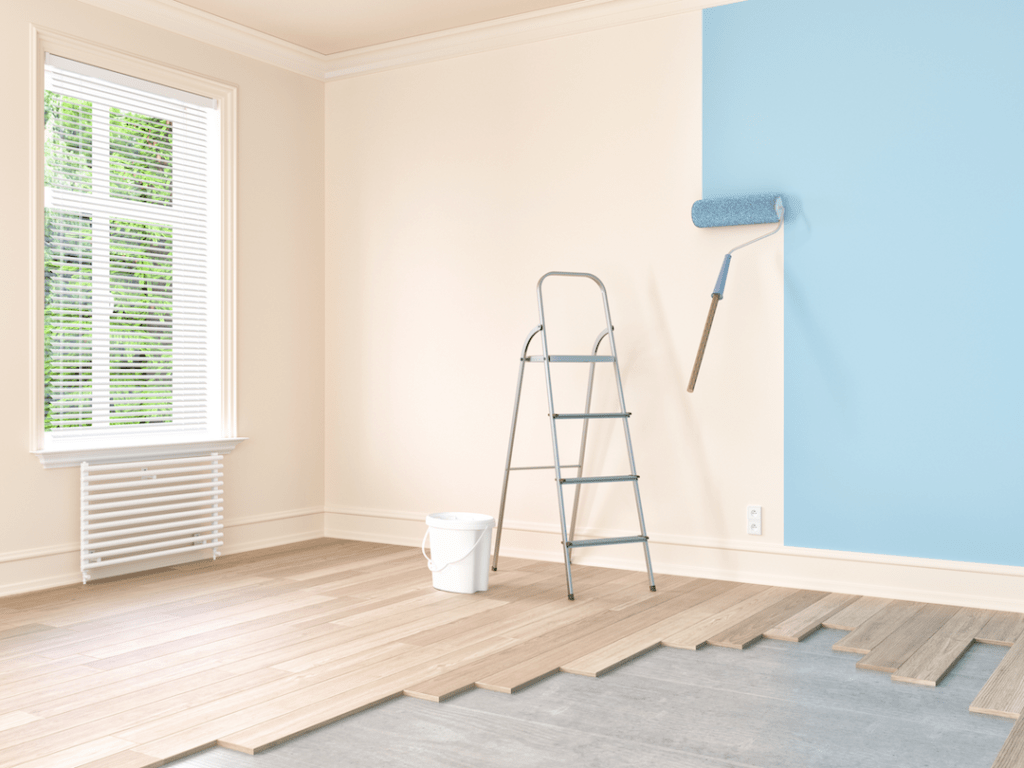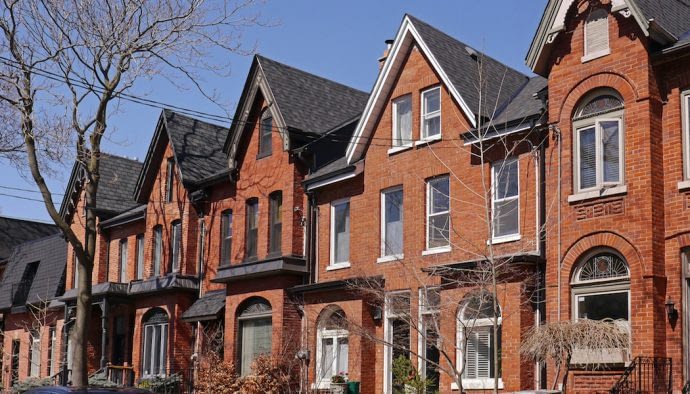Buying a home is a big life decision for the majority of Canadians. So big that it’s worth asking whether the time or price is right. Right before buying, it’s not a bad idea to pause and ask if you should buy this specific house or continue to rent.
Perhaps you should continue renting until you find a home whose mortgage you can service more comfortably! Maybe it is cheaper to continue renting than buying the house you are considering.
So how do you decide what’s best between renting and buying a home?
A simple way of answering the rent vs buy question is by comparing the monthly rent with the monthly mortgage repayment. But Canadian portfolio manager and Youtuber, Benjamin Felix believes that approach is flawed. His 5% rule introduces the concept of ‘unrecoverable costs’ that he argues should inform the decision to buy or rent a home.
What Is The 5% Rule in Real Estate Investing?
According to the 5 % rule, the yearly unrecoverable cost of homeownership equates to 5% of the property’s total purchase value. By dividing that value by 12 you will then get the total monthly cost of owning your home. According to Felix, like the monthly rent you pay, this is money that you pay for accommodation that you will not get back.
For example, if a house costs $600,000 to buy, by multiplying that value by 5% and further dividing by 12, we will get $2,500 as the monthly homeownership cost. That becomes our breakeven point when deciding whether it is best to keep renting or buy a particular house.
To apply the 5% rule, it will be better to keep renting if the rent for a similar house is less than $2,500. But if the prevailing rentals are above $2,500, it will be a more financially sound decision to buy this house than to keep on renting.
What Makes Up The 5%?
Expressed as an annual value and derivative of a home’s purchase price, the 5% is the sum of the unrecoverable costs of owning a home. In other words, it is what you would expect to pay to maintain the home and service the mortgage. The 5% breaks down into three costs:
- Home maintenance (1%)
- Property tax (1%)
- Cost of capital (3%)
Real estate experts generally agree that it costs about 1 percent of a property’s purchase price to maintain it per year. Property tax in Canada is also 1 percent of a home’s acquisition price. For our example, both would be $6,000 per year or $500 per month.
That leaves us with the cost of capital. This is where it gets a little complicated because the cost includes the mortgage interest as well as the opportunity cost you lose when you decide to put money you have already saved towards a downpayment for your mortgage as opposed to investing it in stocks.
The average mortgage interest rate in Canada averages 3%, so again that is a straightforward cost to calculate. That is the cost of debt, assuming that you are putting down 20% percent of the home’s price from your own savings, with the mortgage loan financing the remaining 80%.
The cost of equity you invest in the home, or what you are giving up by paying the 20% down payment represents the opportunity cost. According to the 5% rule, that cost is also unrecoverable and must be factored into the rent vs buy decision.
It is the assumptions behind the cost of equity that critics find most problematic about the 5% rule. More on that later, but the argument is you will lose the opportunity to earn more on your mortgage down payment by investing it in a home instead of buying stocks. The stock market has traditionally outperformed the real estate market by 3%.
At 3%, the opportunity cost of the potential returns lost on the money you put towards the down payment is the same as the cost of servicing the mortgage loan. Add that 3% to the 1% for maintenance costs and the other 1% for the property tax bill and you will get 5% of the home’s purchase as the annual unrecoverable costs of owning a home.
Weaknesses Of The 5% Rule
Though a generally useful framework for determining what’s the sound decision between buying a home and renting, the 5% rule makes a few questionable assumptions. We will debunk them below:
People generally don’t serve unless forced to
The first contestable assumption of the 5% rule of home buying versus renting is that one would still have saved money even if the plan was not to put the savings towards a home deposit. People generally save for a goal, which in this case is the mortgage down payment. Without that goal in mind, there’s no telling if one would have saved the money.
Another angle to the assumption is that even if one did save an amount equivalent to a mortgage down payment, they would invest it in stocks because the stock market offers better returns. As humans, we don’t always act rationally. Most people would spend those savings on something that has a lower or no return at all, and not necessarily on stocks.
In reality, people are more motivated to save for a home deposit than for a stock market investment. The pain of saving for something like a house is somehow more bearable. So the prospect of homeownership forces most people to save.
Maintenance costs aren’t completely unrecoverable
It can be argued that home maintenance costs are actually recoverable because they can add to the value of a home. At the very least, they help to protect a home’s market value as a poorly maintained home will gradually lose its value.
A few cosmetic touch-ups prior to putting the house on the market can actually add a value bump to the property. That is to say, some home repairs have an ROI – they add more to the value of a home than they cost.
Pride of homeownership
There is a lot of fulfillment and pride that one can get out of the home buying process, from getting approved for a mortgage, viewing homes, and closing the home purchase.
Owning a home itself provides a sense of community and feelings of independence and stability. While this differs from person to person, you cannot put a monetary value on it.
And not everyone wants the benefit of mobility that renting offers. Those who are keen to start a family, in particular, prefer a ‘forever home’ where they can plant roots and raise their children.
In the end, for many people, it does not matter much if buying a home will cost them a couple $100 more than they would spend if they were renting. The 5% rule also ignores the possibility that a homeowner can rent out part of their home for income, which will offset some of the costs of homeownership.
In the context of the red-hot housing market in Toronto, buying a home will also cushion you from the ever-rising cost of rentals. By choosing to buy you are also locking in the said unrecoverable costs of homeownership, which you can’t say about rentals that aren’t guaranteed to stay at current levels.
Need A Real Estate Agent To Help You Through The Home Buying Process
With the prevailing housing shortage and the ever-rising house prices in Canada, it can be tough to find a home that you can afford in your desired neighbourhood. Now more than ever before it is critical to enlist the services of an experienced real estate broker who knows your local area well.
Souqh is a real estate and home services marketplace where Canadians can search for professional services and contractors. Searchable by location, Souqh has tools that help you compare quotes and connect with real estate agents and other home services professionals in your local area. Search for a local real estate agent here.










